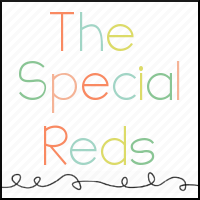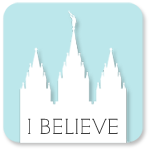Is sharing a diagnosis a good thing? Or is it better to let people figure it out? Does the diagnosis matter all the time? What does sharing a diagnosis do, exactly?
I have trouble with this often, knowing what to tell people when they encounter my 12-year-old daughter. Most everyone that knows our family is aware that she has autism--naturally, word gets out. But when we are out in public, and something sets her off (which is becoming more and more rare), I have been known to tell people around me that she has autism. In fact, a number of years ago in a Wal-Mart line while she was having a horrible tantrum and people all around me were staring, I blurted out, "She has autism, OKAY???" That seems to set people straight again, since most everyone in society has at least heard of autism, or knows something about it. (There are plenty of parents writing about it, and self-advocates, too. And that's a good thing. Keep writing and sharing.)
But you know what? I hate that I have to use her diagnosis as an excuse for her behavior, or to explain her behavior. Because once the word has been applied to her--once people have been told she has autism, she has, in a sense, been "typecast." It changes how people view her and interact with her. It just changes everything.
The word "typecast" makes me think of certain actors in Hollywood. Those poor children who grew up playing the characters from Harry Potter--talk about being drawn into a box. Sure, some have broken out and played other roles, but they will always be Harry, Hermione, and Ron. And what about Lord of the Rings? Elijah Wood and Sean Astin are hobbits, forever. Steve Urkel from "Family Matters?" Screech from "Saved by the Bell?" Will we ever truly see these actors as anything other than what they have portrayed for so long on the screen? This typecast thing must be pretty tough as an actor.
But back to us regular people. What about those kids with "labels?" Haven't we essentially done the same with them? When I tell a person my daughter has autism, is she then written off as someone with autism? Someone who automatically, indefinitely has no capability to be a friend to someone, to have fun with, to talk to? Someone who is so different that there's no point in trying to connect or relate? This is the danger that I see behind sharing the diagnosis--the person being told the diagnosis sets limits on the individual based on the knowledge they have of that particular diagnosis. The individual has been typecast, prescribed a specific description of characteristics, and only very few will actually try breaking through the boundaries of so-called "definition" to discover what lies inside that box.
Those few are, of course, parents. Family members. Close friends. Teachers. The ones who don't even see the diagnosis anymore, but the child or individual for who he or she is. They see potential, abilities, no limits. They see what others do not see, because they love. Love can also be spelled TIME. They've had time to love. "Perfect love casteth out all fear." (1 John 4:18). And maybe the root of typecasting is fear, after all. Fear of what a person does not understand about a disability or disease. It's easier to set a boundary based on what you know, rather than digging deeper. Maybe if we treated all people out of love there would never be a need to typecast. Or maybe the diagnosis wouldn't be a boundary, but a bridge to gain new understanding--a bridge that leads to a starting point of a beautiful relationship, that leads to love.
Just imagine if we viewed others out of love and not fear. I wouldn't have to fear what others would think when I explain that my daughter has autism. But you know what, there's a good chance that I wouldn't even have to mention the diagnosis at all, because we are all different and diverse, and with love as our lens, it wouldn't matter what a child or person might be faced with. Love would conquer all.
Those poor typecast actors trying to break through what others see them as. Daniel Radcliffe has certainly proven he can be more than Harry Potter. Dustin Diamond has pursued other avenues as well. And who could forget the episode when Steve Urkel ditches the nerd-clothes and plays another character, one much more desirable and good-looking? Is it possible that those kids with "labels" can be viewed differently, too? Can they be viewed as more than their diagnosis by those outside their close-knit circle? I think so. I know so. Sharing the diagnosis might change things, but it shouldn't limit things--only open new doors of understanding. As long as love is part of the equation, anything is possible.






















It is such an awesome and great post that I see.
ReplyDeleteFor me knowing about Typecast very great and useful.
Great post and very well post contain useful information.
I really appreciate your writing you actually put your heart out. I know it often gets tough to deal the situation. May prayers are with you and your daughter.
ReplyDelete